Results
-
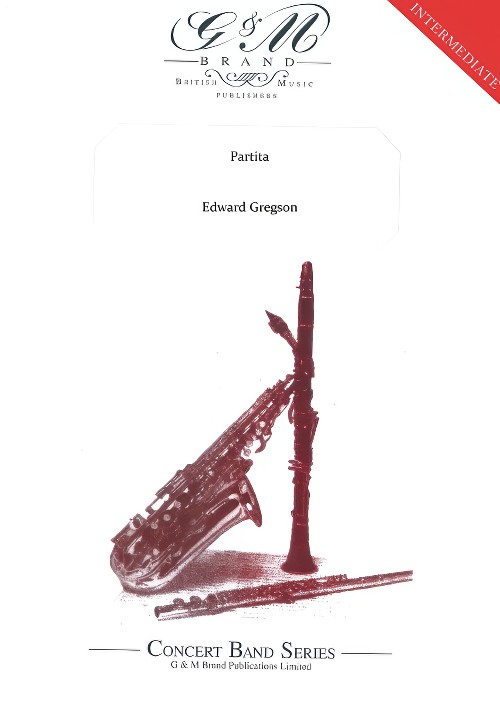 £84.95
£84.95Partita (Concert Band - Score and Parts) - Gregson, Edward
Partita' was originally composed for brass band in 1973. The work is in three movements, and uses material based on the 13th century plainsong 'Dies Irae". the opening Intrada is sombre. the second movement is a 'chorale and variations. the chorale melody follows the main outline of the plainsong. the five variations are varied in mood and intensity. the final March is much happier in mood and has a lyrical tune in the middle first heard on horns. However, references to the 'Dies Irae' are still apparent and the final bars of the work contain a quote from the opening movement.
Estimated dispatch 7-14 working days
-
 £16.95
£16.95Partita (Concert Band - Score Only) - Gregson, Edward
Partita' was originally composed for brass band in 1973. The work is in three movements, and uses material based on the 13th century plainsong 'Dies Irae". the opening Intrada is sombre. the second movement is a 'chorale and variations. the chorale melody follows the main outline of the plainsong. the five variations are varied in mood and intensity. the final March is much happier in mood and has a lyrical tune in the middle first heard on horns. However, references to the 'Dies Irae' are still apparent and the final bars of the work contain a quote from the opening movement.
Estimated dispatch 7-14 working days
-
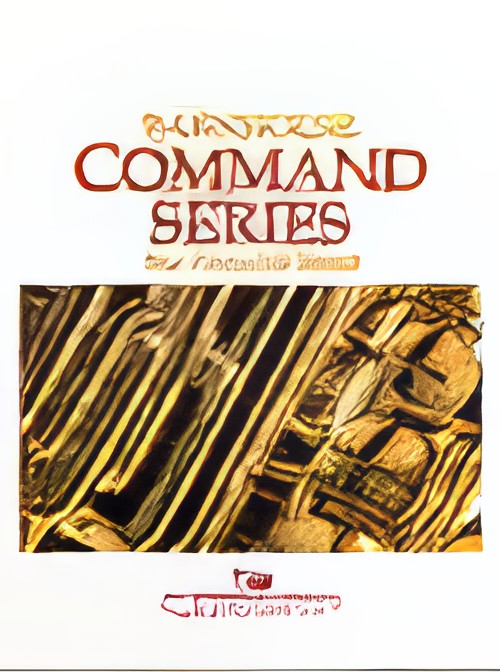 £55.00
£55.00Stone Creek Episode (Concert Band - Score and Parts) - Huckeby, Ed
A spirited overture for young bands which is full of exciting rhythms and bold, contemporary harmonies. Has a lovely andante section in 3/4 that first features alto sax and then the whole ensemble. Very playable yet still challenging for middle school and high bands and it's perfect for contest or concert performances. A truly outstanding piece for developing bands!Duration: 4.15
Estimated dispatch 7-14 working days
-
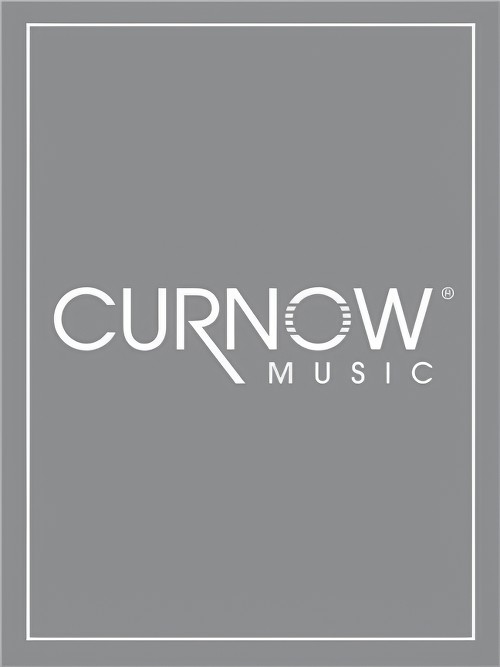 £60.99
£60.99The Festive Season (Concert Band - Score and Parts) - Curnow, Paul
Colourful lights, shining candles, sparkling bulbs, gifts beautifully wrapped and friends coming to visit. And with the friends come music, merry singing and joyous carols resounding through the house. When you think about and sing along to Good King Wenceslas and God Rest You Merry, Gentlemen, you can scarcely sit still. Then when Jingle Bells is heard, it seems as though you should stand and dance while singing. It is the Festive Season!Duration 2:15
Estimated dispatch 7-14 working days
-
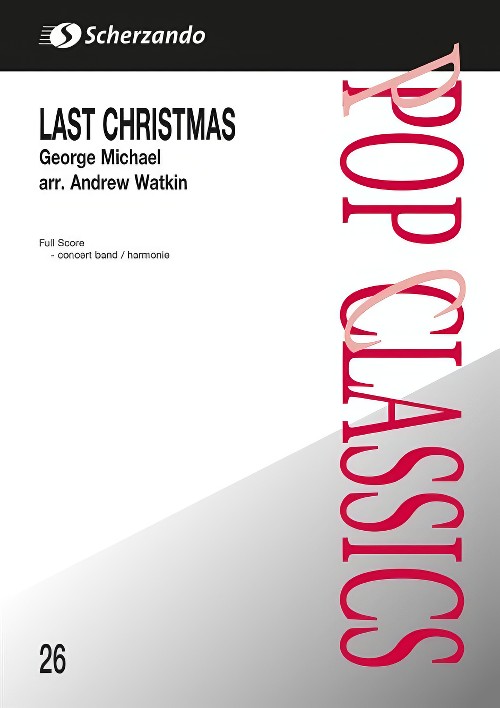 £84.99
£84.99Last Christmas (Concert Band - Score and Parts) - Michael, George - Watkin, Andrew
George Michael has been in the pop charts for may years, initially with the group Wham and later as a solo artist. Last Christmas was one of the last songs written whilst still in Wham and has now become a Christmas classic.Duration: 3:00
Estimated dispatch 7-14 working days
-
 £104.99
£104.99Nocturne (Clarinet Solo with Concert Band - Score and Parts) - Tchaikovsky, Peter Ilyich - Van der Beek, Wil
Tchaikovsky is best known for his purely instrumental compositions. However, we must not underestimate him as a composer of operas. Many of his operas such as Pique Dame and Eugene Onegin are still performed regularly throughout the world. Eugene Onegin (also called Jevgeny Onegin), composed in 1877-1878, was not called an opera by Tchaikovsky himself, but lyric scenes. The work is entirely dominated by lyricism. However, there are two moments that contrast sharply with this lyricism: two ball scenes, for which Tchaikovsky wrote a waltz and a polonaise. After opening with a less well-known allegro dansant, this arrangement features the aforementioned waltz, which can be considered a beautiful Russian equivalent of the Faust Waltz by Charles Gounod. In the opera, this waltz is actually played by a military band. The arrangement concludes with the pompous polonaise (also mentioned above) which opens the last act: the ideal music to characterize high aristocracy in the salon of a palace in St. Petersburg.Duration: 3:30
Estimated dispatch 7-14 working days
-
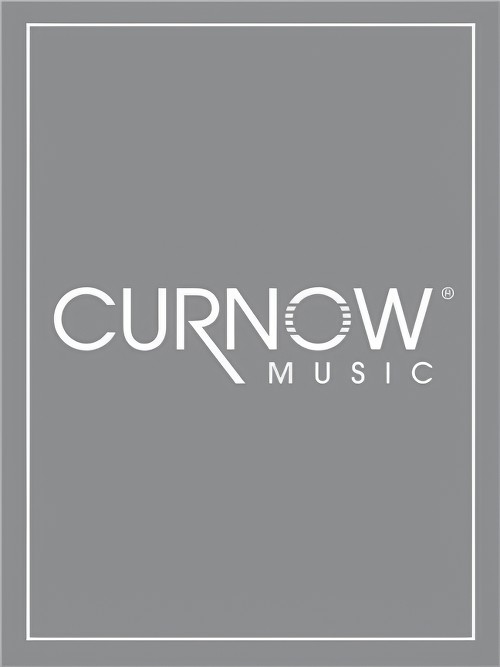 £91.99
£91.99Apple Island Legend (Concert Band - Score and Parts) - Curnow, James
This work strives to capture the beauty of Apple Island, a small island located in the centre of Orchard Lake in Michigan, and the surrounding area. It also pays homage to the colourful Native American leader Chief Pontiac who lived and is buried on the island. The main theme, which appears throughout the work, is based on an original Native American chant that is still used today in their sacred religious ceremonies.Duration: 6.00
Estimated dispatch 7-14 working days
-
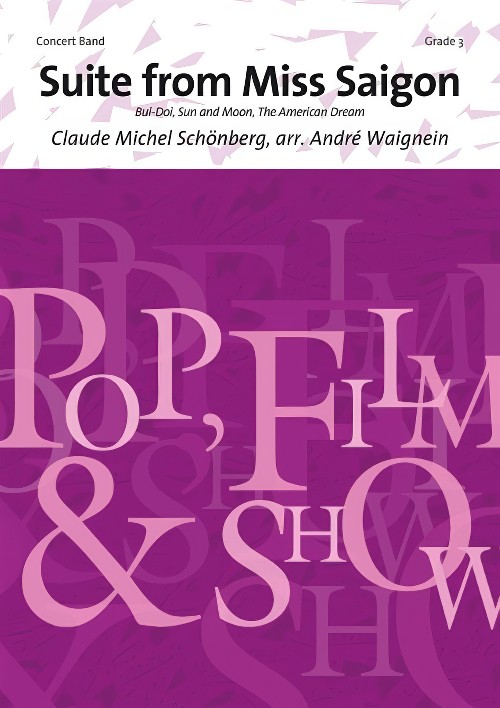 £134.99
£134.99Suite from Miss Saigon (Concert Band - Score and Parts) - Schonberg, Claude-Michel - Waignein, Andre
The musical Miss Saigon was a massive hit in London, Broadway and throughout the world. Based on Puccini's opera, Madame Butterfly, this epic production centres on the romance between a strong-willed Vietnamese woman and an American soldier during the Vietnam War. The story tells of two young lovers torn apart by war yet still held together by a burning passion. This medley features three of the best songs from the musical and mixes desperate love with optimism and joy. Relive the hit show with this catchy medley.Duration: 10:30
Estimated dispatch 7-14 working days
-
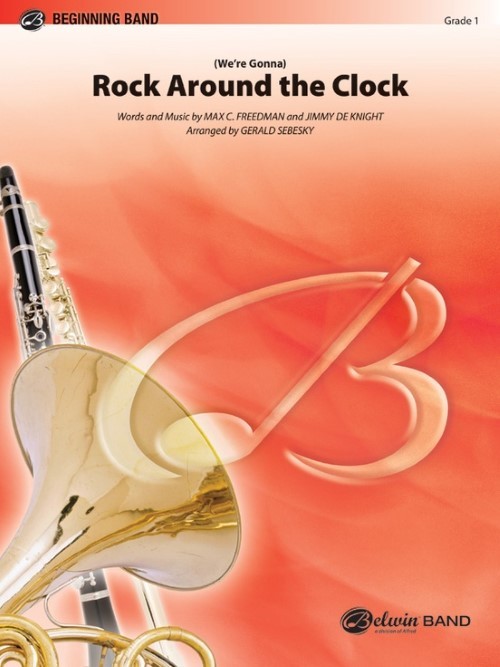 £55.50
£55.50(We're Gonna) Rock Around the Clock (Concert Band - Score and Parts) - DeKnight & Freedman - Sebesky, Gerald
This classic anthem of rock 'n' roll was sent screaming up the charts not once but twice by Bill Haley and his back-up band The Comets. It was a time when all the boys and girls were devoted 24 hours a day to the celebration of every new rock tune and dance craze. Who would have thought that forty years later, kids (of all ages) still remember, whistle and hum this hip swingin' winner. Program this with your band and you'll be declared 'right on time'! Duration: 1.30
Estimated dispatch 7-14 working days
-
 £118.99
£118.99La Cittadella (Concert Band - Score and Parts) - Vlak, Kees
In La Cittadella, Kees Vlak reflects the stark contrasts in the Italian mountain village Assisi. On the one hand there is the bustle of the hundreds of thousands visitors who have come to admire the beautiful San Francesco Basilica. On the otherhand within the city walls there is La Cittadella, a complex of buildings where severely handicapped people are taken care of by sisters. The dissonant main theme in the solo trumpet depicts the isolation of these people. Still, the loving care of the sisters provides some light in the darkness. This beautiful piece will bring a sense of spiritual love to any concert.Duration: 8.30
Estimated dispatch 7-14 working days
